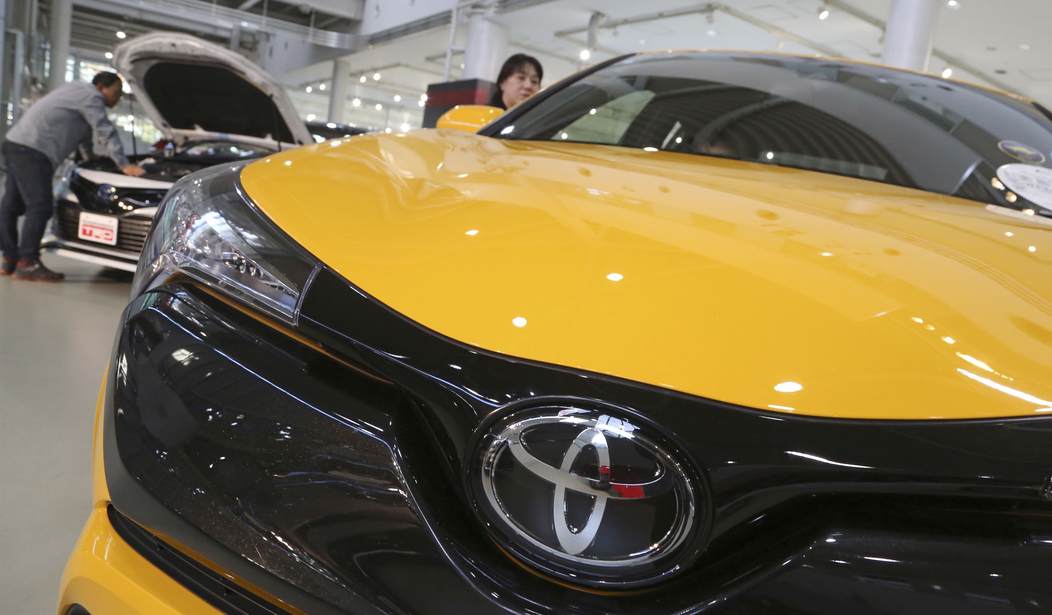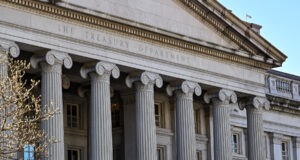
by Stephen Green, PJ Media, November 11, 2024.
California’s electric vehicle mandates, which go into effect next year, are “impossible” to meet and will result in reduced choices on dealer lots.
“I have not seen a forecast by anyone,” Jack Hollis, chief operating officer of Toyota Motor North America, said on a Friday roundtable discussion, “government or private, anywhere that has told us that that number is achievable. At this point, it looks impossible.”
by Arnold Kling, In My Tribe, November 11, 2024.
Excerpt:
Before the creation of the Fed, America suffered from periodic financial crises. Since the creation of the Fed. . .America has suffered from periodic financial crises.
The populist era in American banking finally ended in the 1980s. Before then, a bank could not have a branch in more than one state. Many states allowed only a single branch within the state. Our contemporary banking system, dominated by a handful of large national institutions operating in every city, would have been unrecognizable as late as the early 1970s.
Prior to the deregulation of the 1980s, our financial system was so fragmented that savings in the East Coast, where there was a surplus, could not flow to the West Coast, where they were needed. The Federal Home Loan Mortgage Corporation, now known as Freddie Mac, was created in 1970 largely at the behest of California’s homebuilders and housing lenders, who were desperate to obtain capital from New York and other eastern states.
DRH comment: One of the most eye-opening parts of Jeff Hummel’s Masters-level class in Monetary Theory at San Jose State University, which I took on line in early 2021, was the facts about how primitive the American banking system was compared to that of the system in my native Canada. Restrictions on branch banking were a key element in the start of the Great Depression.
by Miles Smith IV, Law & Liberty, November 12, 2024.
Excerpt:
By 1833, Crockett—despite remaining a committed political Jacksonian—openly defied Jackson, particularly because of what he believed was the president’s unconstitutional veto of the Bank of the United States. Crockett never embraced the bank, and was not a “bank man,” but he was convinced that the Bank’s charter was constitutional and that Jackson acted outside of his authority when he vetoed its recharter in 1832. Jackson’s veto convinced Crockett “that Old Hickory had become a tyrant, abetted now by having Van Buren as vice-president, obviously the hand-chosen successor.” During the 1834 congressional canvas, “Crockett spoke out strongly for rechartering the bank and holding onto its deposits,” and accused Jackson “of seeking to close the bank in order to take control of the deposits himself to use for the purpose of ensuring Van Buren’s succession.” The United States, he declared, could “be a nation of laws or have a despot.” Crockett, still actively supporting the bulk of the Jacksonian political program, nonetheless answered Jacksonian newspapermen who questioned his intelligence by mocking Jackson. “It is objected to me that I want learning. Look to your President. Look to your President I say. What does he know?”
Voters in Tennessee—loyal to Jackson—finally sent Crockett packing for good in the gall of 1834. When he left office in early 1835, Crockett apocryphally quipped: “I told the people of my district that I would serve them as faithfully as I had done; but if not, they might go to hell, and I would go to Texas.” Where Crockett did not go was over to the opposition or to the press to make himself a darling of the Whig Party. He did, in fact, go to Texas, where he now lies buried after his death fighting the forces of the Mexican dictator at the Alamo in March 1836.
by Nicholas Anthony, Cato at Liberty, November 12, 2024.
Much like [sic] interest in a job should be factored into the unemployment rate, so too should interest in a bank account be factored into the unbanked rate. Ideally, this interest would be quantified as the number of people who have tried to open an account in the last six months. Although this exact information is not currently available, the Federal Deposit Insurance Corporation’s biennial survey of unbanked householdsdoes have a question that asks unbanked Americans how interested they are in opening an account, and the numbers are astounding.
Over 70 percent of unbanked Americans routinely say they are not interested in having a bank account (Figure 1).




